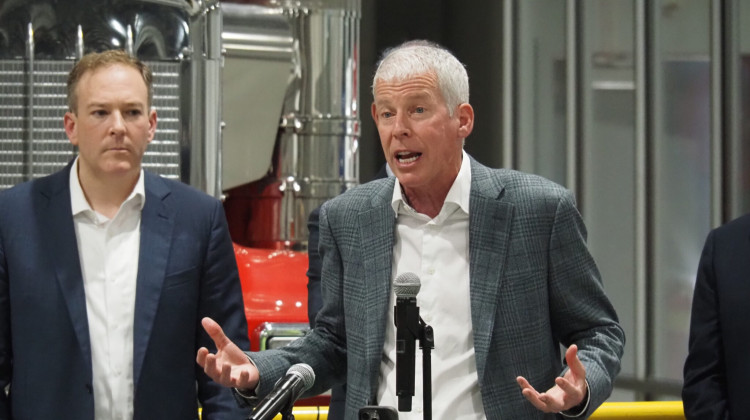Increasingly, consumers want to feel a connection with where their food comes from, and this presents challenges to farmers. At the Indiana Farm Bureau annual state convention, meat producers asked if they should be concerned about the future of the industry.
More plant-based proteins are now on the shelves, offering alternatives to meat, as consumers are more aware of greenhouse gas emissions and animal welfare.
One major food company presented its plan to tell its story better to consumers and create opportunities for growth.
Tyson Foods Sustainable Food Policy senior director Justin Ransom says technology has transformed the agricultural industry for decades, but failed to bring the consumer with it.
“At the end of the day it’s all about how people feel connected to their food whether it’s 500 miles away or five miles away,” says Ransom. “And being able to tell that story about transparency, about where your food comes from, about the way it was raised, is really what consumers are looking for.”
Ransom says while Tyson will continue producing meat, the company has expanded into the plant-based protein to diversify its options for consumers and prepare for the growth in global population that’s expected to exceed 9 billion by 2050.
Purdue University agricultural economics department head Jason Lusk says the plant-based products are costly despite claims the saving of resources compared to meat.
“And maybe it’s because they’re starting up, they don’t have scale economies yet, maybe their targeting a certain clientele that’s higher income,” says Lusk. “But if we don’t wake up, five to 10 years from now and see these products substantially less expensive I think it does call into question some of the claims about the resource savings.”
Lusk believes both meat and plant proteins have a place in the future market, but those producing animal protein will have to continue to find innovative ways to reduce greenhouse gas emissions.
Contact Samantha at shorton@wfyi.org or follow her on Twitter at @SamHorton5.
 DONATE
DONATE








 Support WFYI. We can't do it without you.
Support WFYI. We can't do it without you.